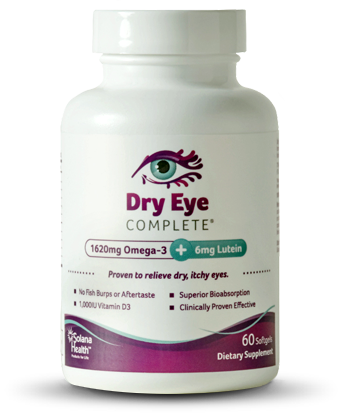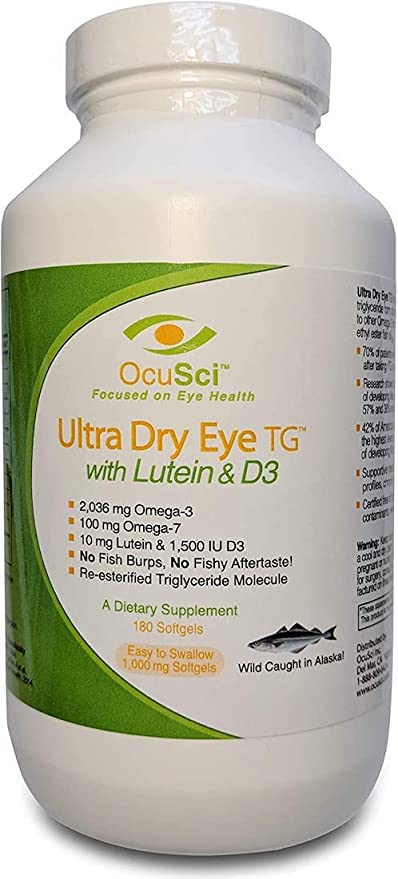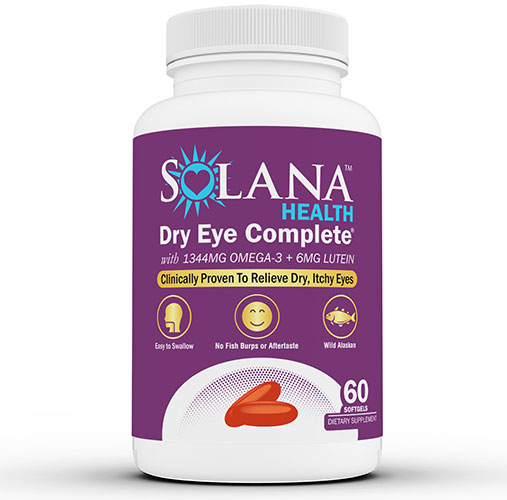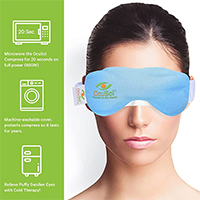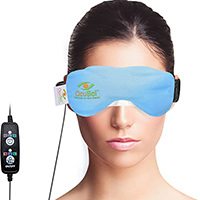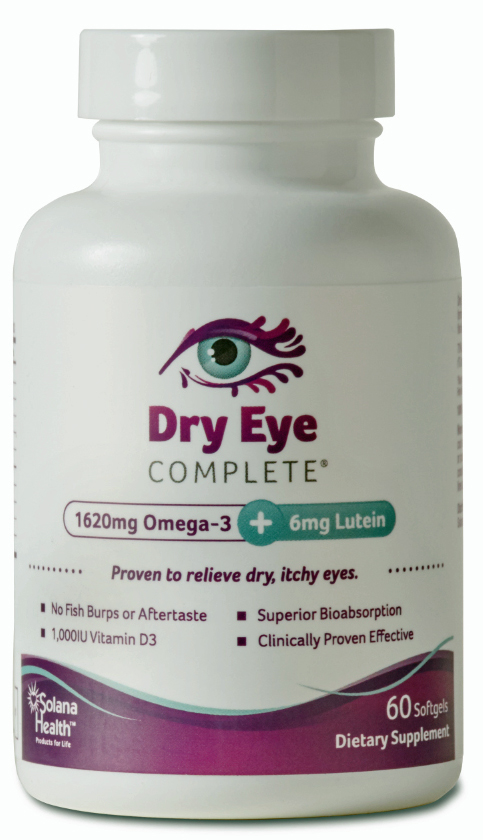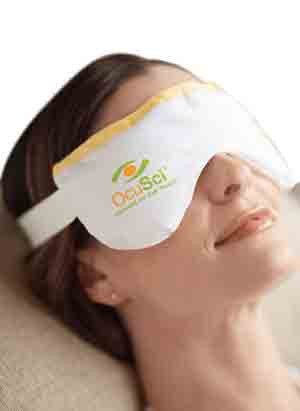Dry eye syndrome (DES) is the number one complaint that people visit eye doctors for. While most common in post-menopausal women, it can actually affect anyone, regardless of age, gender or ethnicity. DES can range from mild to severe and presents with a number of different typical symptoms.
In most cases, when there is something wrong with the eye, this is a symptom of an underlying condition, generally some sort of deficiency. Vitamins A, C, D, E, B complex, magnesium, zinc and omega-3 deficiencies are often found in people who suffer from DES. This is one of the reasons why many people choose homeopathic remedies to treat their dry eyes.
It is equally possible that a more significant medical issue is at play. For instance, dry eyes are also symptomatic of lupus erythematosus, rheumatoid arthritis, Sjogren’s syndrome and other autoimmune diseases. In this case, it is important to speak to a medical professional about how to properly treat this condition. At the same time, some homeopathic remedies may also be of benefit.
When You Should Not Choose Homeopathic Remedies
There are certain cases in which you should only use homeopathic remedies if specifically told to do so by your physician. Because these remedies are available over the counter, a lot of people self-medicate. While they may not do themselves any harm in so doing, they may actually be ignoring more serious conditions that require medical treatment. As such, in the following cases, you should seek medical advice first:
• If there is, or may be, a foreign body in your eye. Silica, a homeopathic, over the counter remedy can help with flushing it out, but this should be done only if you were advised to do so.
• If you experience any pain or swelling anywhere in the face that is not clearly related to the eye
• If you struggle to move your eye, as this would mean there is some sort of trauma to the cerebral area
• If there is trauma to the eye, such as a pupil that does not react properly to light, a torn pupil or a cloudy cornea
• If you have, or believe you have, glaucoma
• If you have had recently had laser treatment, LASIK, or any other type of eye surgery
Symptoms of Dry Eye
A number of symptoms are commonly associated with DES. If you recognize these symptoms in yourself, then you may want to try homeopathic remedies. Symptoms include:
• Dryness
• Irritation
• Grittiness
• Burning
• Excessive tearing and watering (which may seem contradictory but is actually very common, because the eyes are reacting to a problem and trying to wash it out)
• Difficulty reading
To understand DES, you must understand the ‘tear film’ of the eye itself. This is the surface of the eye, which is filled with moisture. The tear film has to be of the exact and correct consistency in order for the eyes to be properly supported. The film is made up of three layers, which are:
• A layer of mucus, which also has a number of anti-microbial properties
• A layer of water, which makes up around 90% of the entire film
• A layer of oil, which stops the water from evaporating too quickly
Every time you blink, the tear film is renewed. It takes around 10 seconds for the film to become unstable, which is why most people blink around 10 to 12 times each second. In people with dry eye, there is usually an inconsistency in one of the three layers, or blinking doesn’t renew the film properly.
Homeopathic Treatments to Solve Dry Eye Syndrome
There are a number of homeopathic, natural things that you can do in order to alleviate your dry eye condition. In some cases, this may actually solve the issue altogether. If you have tried these options but the problem still persists, you may want to consider visiting a medical professional to try some more conventional medicine alternatives.
The first thing you need to try is to change your environment. In almost every case, someone who suffers from dry eyes either lives in very dry climates, or has a very dry atmosphere in the home. While moving to a different geographical location may not be an option for you, placing humidifiers in every room in your home and office is likely to make a very big difference. Other environmental factors that you need to avoid include:
• Tobacco smoke
• Wind
Take appropriate steps to protect your eyes when you engage in certain activities. If you ride a bike, motorcycle, or convertible car, or if you walk and it is very windy, you should always wear protective eye gear. Make sure you also wear this if you ever go skiing.
A second element you may want to try in terms of homeopathy is to take fatty acid supplements. If you want to go all natural, this would mean increasing the amount of oily fish you eat. However, you can also take omega-3 fatty acids. Some research has shown that people who do so alleviate the symptoms of DES, with some test subjects even reporting the issue as being completely resolved. Omega-3 helps to reduce inflammation of the eye, increases the production of tears and improves the quality of the tear film.
If you do not want to take supplements, you can increase your dietary intake of:
• Palm oil
• Flaxseed oil or ground flaxseed oil
• Chia seeds
• Soybean oil
• Walnuts
• Fatty fish like tuna, salmon, mackerel and sardines (you should eat this twice a week as standard anyway)
• Fortified eggs
You can also try homeopathic ointments and drops. Remember to check the ingredients, as many do contain preservatives and other non-natural elements. Artificial tears are highly effective for DES. While drops that contain preservatives tend to be stronger, they are also not suitable for extended use. Furthermore, they are more likely to cause irritation. Lastly, they are not natural or homeopathic.
Ointments are very similar, which means that you again have to check the ingredient list if you want to go homeopathic. These ointments should be applied to the eye when you go to bed, as they will make your vision blurry and are hence not suitable if you still have to drive, work or engage in any other type of activity. Combining ointment at night with drops during the day is generally very effective.
Finally, there is vitamin D. The ‘sunshine vitamin’ is now known to affect almost every cell in our body, which includes the eyes. There is no conclusive evidence yet that vitamin D deficiencies and DES are connected, but the case for it is pretty strong. Firstly, it is known that 60% of people in this country have a vitamin D deficiency. Additionally, in a study of 50 non-menopausal women who had a vitamin D deficiency, it was found that DES was also more common. The study looked at a number of different health related conditions, comparing the group of women with the deficiency to one without the deficiency. The results indicated that:
• 52% of the women with a deficiency had current DES
• 74% of the women with a deficiency had general weaker health
• 70% of the women with a deficiency had chronic dry eye
While there is no immediate proof that taking a vitamin D supplement will improve dry eye, it is a known fact that it will improve many other parts of your health. Hence, taking the supplement will certainly not be harmful, even if it doesn’t address your dry eye.
Resources and References:
Facts About Dry Eye – Information on dry eye. (National Eye Institute)
Dry Eyes – General information on dry eye. (Mayo Clinic)
A Complete Guide to Dry Eye Syndrome – Guide to dry eye syndrome. (Eye Health Web)
Homeopathy – Homeopathic treatments for eye diseases. (Healing the Eye and Wellness Center)
Efficacy of a 2-Month Dietary Supplementation with Polyunsaturated Fatty Acids in Dry Eye Induced by Scopolamine in a Rat Model – Research on polyunsaturated fat supplementation for dry eye. (NIH.gov)

